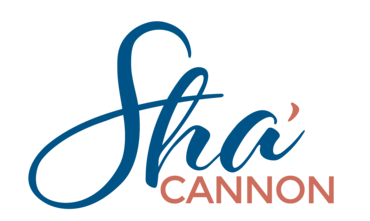For most of us, success in entrepreneurship comes with consistency, and that consistency demands focus. The human experience includes being inconsistent and distracted. We literally have to fight the inclinations to stop or take breaks from the very things that define success for our business. My business besties and mentees point to my focus as something they admire about me. To fight my human inclinations, I reinforce my focus with mindset, tools, and tips from some of my favorite gurus and I want to share them and four tips from each with you.
Simon Sinek. He is a New York Times Bestselling Author renowned for his insights on leadership, purpose, and organizational culture. He has the #1 Ted Talk of all time called How Great Leaders Inspire Action. Here are four tips I learned from him:
- Start With Why: Central to Simon’s philosophy is the idea that individuals and organizations should understand their “Why” — their purpose or reason for being. By understanding and focusing on your “Why,” you can drive motivation, find clarity, and inspire others.
- Clear Vision: Leaders and organizations must have a clear vision of where they are going. This vision acts as a North Star, providing focus amidst the many distractions and challenges they might face.
- Dangers of Short-Termism: Simon has often spoken about the perils of short-term thinking, particularly in the business world. True focus means looking beyond the immediate quarter or year and thinking about the organization’s impact in the longer term.
- Consistency: Just as he talks about trust being a result of consistency over time, focus can be seen similarly. It’s not about intense short bursts but consistent, aligned effort over time that yields results.
Dr. Joe Dispenza. He is a well-known researcher, chiropractor, and speaker who delves into the intersections of neuroscience, epigenetics, and quantum physics, particularly in relation to personal transformation. Here are four tips I learned from him:
- The Power of Thought: Joe often emphasizes the power of our thoughts in shaping our reality. By focusing our thoughts on positive and transformative ideas, we can potentially influence the material world and our health.
- Meditation and Focus: One of the main techniques Dr. Joe advocates for is meditation. Meditation, in essence, is a focused exercise. Through meditation, individuals can train their minds to cultivate deeper levels of focus and awareness, moving beyond automatic responses and patterns.
- Breaking the Habit of Being Yourself: This is the title of one of his books, and it underscores the idea that by shifting our focus, we can change our habits, our thoughts, and ultimately our identities. To change our reality, we need to change our focus from being victims of our environment to being creators of our reality.
- Being Present: For true transformation to occur, one needs to be completely present in the moment, moving beyond past traumas or anxieties about the future. Focus, in this context, means being deeply engaged in the now.
Mel Robbins. She is not just a motivational speaker, but she is the most booked female motivational speaker in the world and an international best-selling author whose work has been translated into 36 languages. She is also a television host and coach best known for her bestselling book “5 Second Rule.”
- The 5 Second Rule: Mel’s cornerstone concept is that motivation is bullshit because you’ll never “feel” like doing what you need to do. So count down from five (5-4-3-2-1), keep your butt in gear, and take the action you need to take. This rule can be applied to sharpen the focus by breaking the cycle of procrastination and overthinking. By acting immediately, you shift your focus from hesitation to action.
- Break the Habit Loop: Mel often speaks about the neurological patterns that lead to habits. By recognizing these patterns, one can interrupt and replace them with more productive behaviors. This is essential in refining one’s focus towards beneficial actions and away from distractions.
- Environment Matters: The surroundings and environment play a significant role in determining one’s focus. Robbins emphasizes designing an environment that minimizes distractions and aligns with your goals.
- Decision Fatigue: Mel acknowledges the concept of decision fatigue, which can dilute focus. She suggests simplifying daily routines and reducing trivial decisions to conserve mental energy for more important tasks.
Alex Hormozi. He is an entrepreneur known for his expertise in business scaling, sales strategies, and marketing, especially in the fitness industry which has net him a worth of $100 Million dollars. He shares his philosophies and methods for getting to such amazing net worth in his books $100M Offers and $100M Leads (what to focus on).
- 80/20 Principle: Similar to many business experts, Hormozi references the Pareto Principle, suggesting that entrepreneurs focus on the 20% of tasks that generate 80% of the results.
- Simplicity Over Complexity: Hormozi often speaks about the power of simplifying processes in business. A focused approach often means removing unnecessary complexities to streamline tasks and get to the results.
- Consistent Action: Consistency in efforts, whether it’s in marketing campaigns or service delivery, is vital. Focusing on consistent action can lead to predictable results.
- Value-driven Approach: Alex often emphasizes delivering immense value to customers. By focusing on value creation, businesses can cultivate loyalty and drive organic growth.
Bonus… MY tips on focus from my signature training and planner CEOLifeDesign™:
- Project VS Task: Know the difference between a project and tasks. Some of us make a list of things to focus on and more times than not, a single item takes a series of items to complete it. That makes it more of a project, than a task. Pay attention to listing something as a single item and having the expectation that it be a single item and it is really a series of items that could take more time than you have allotted. If it is a project, reevaluate how to focus on everything on a task-by-task basis.
- Prioritization: When there is a long list of tasks to get done, it’s hard to know which tasks to focus on doing first. Rank their priority using these four questions (listed in priority order): 1] What is the time constraint/urgency? 2] Do I need to pass it to someone else that will be waiting on me to do my part? 3] Do I need to do any preparation before I can focus on the task at hand? 4] Is it a high-value task that moves the needle?
- Optimization: Consider what type of focus works best for you to get more tasks done. Here are two questions to help you to determine how and when to tackle tasks: 1] Does it work best for you to complete the quick & easy tasks first or to work on the more complex tasks first (eat the frog)? 2] What time of day is your focus and energy levels best for completing tasks timely and excellently?
- Routine: To support your success with focus, give yourself routine time blocks to focus on production (tasks needed to meet deadlines). Make it routine to end the day with what tasks are important for tomorrow and start the day by reviewing the list from the day before to be sure they are still the priority focus. Routinely, check in throughout the day with your list to see what you have done in case you need to refocus on what is important. That will prevent your day from ending with you finding out you didn’t stick to your intended focus.
If you need support with planning your focus, let’s talk. It’s FREE. ShaCannon.info/talk

